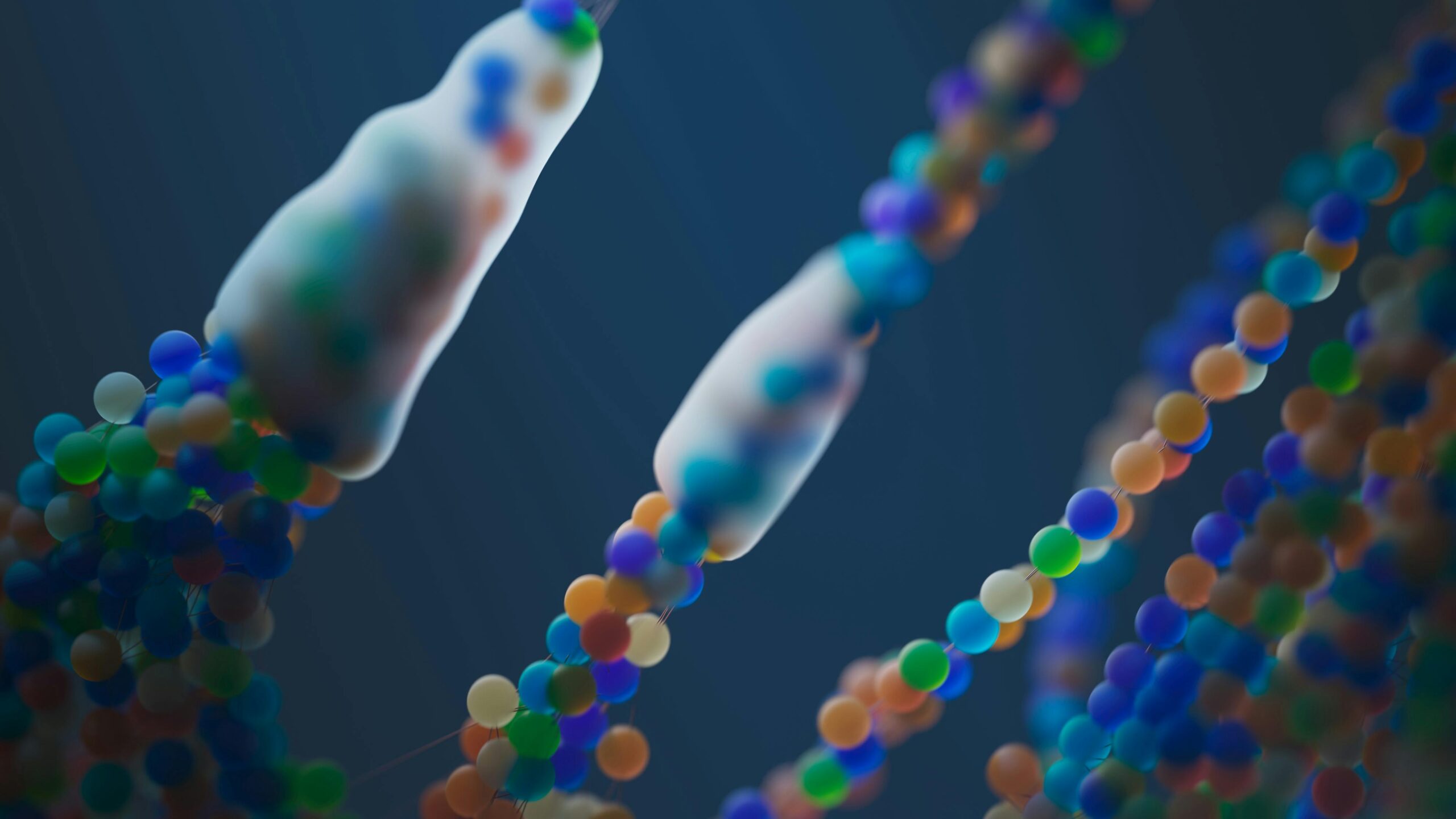Your DNA holds the blueprint for your health, but psychological stress can profoundly influence how your genes express themselves, affecting everything from immunity to longevity.
🧬 The Revolutionary Connection Between Your Mind and Your Genes
Science has unveiled an extraordinary truth: your thoughts, emotions, and stress levels don’t just affect your mood—they literally change how your DNA functions. This phenomenon, known as epigenetics, demonstrates that while you cannot change your genetic code, you can absolutely influence which genes get activated or silenced through your lifestyle choices.
Psychological stress triggers a cascade of biochemical reactions that impact gene expression, inflammation levels, cellular aging, and disease susceptibility. The good news? Understanding this connection empowers you to take control of your genetic destiny through stress reduction strategies backed by cutting-edge research.
Modern life bombards us with stressors—work deadlines, financial pressures, relationship challenges, and information overload. These chronic stressors don’t just make us feel overwhelmed; they create measurable changes at the cellular level, affecting telomere length, cortisol production, and inflammatory markers that determine our health trajectory.
How Stress Literally Rewrites Your Genetic Expression
When you experience psychological stress, your body activates the hypothalamic-pituitary-adrenal (HPA) axis, releasing cortisol and other stress hormones. These chemical messengers interact with your cells, influencing which genes are turned on or off through a process called methylation.
Chronic stress can lead to harmful epigenetic changes that increase your risk for cardiovascular disease, diabetes, depression, autoimmune conditions, and accelerated aging. Research published in leading scientific journals has demonstrated that prolonged stress exposure can even shorten telomeres—the protective caps on your chromosomes that determine cellular aging.
The most remarkable discovery? These changes are reversible. Studies on meditation practitioners, stress management participants, and individuals who adopt comprehensive wellness strategies show measurable improvements in gene expression patterns within weeks or months.
The Stress-Gene Connection in Numbers
Research has identified over 200 genes that respond to psychological stress, affecting multiple body systems simultaneously. These stress-responsive genes influence inflammation, immune function, metabolism, brain chemistry, and cardiovascular health.
One groundbreaking study found that just eight weeks of meditation practice altered the expression of genes related to inflammation, energy metabolism, and insulin secretion. Another research project demonstrated that chronic stress could age your immune system by up to 15 years at the cellular level.
🎯 Science-Backed Strategies to Optimize Your Genetic Potential
Reducing psychological stress isn’t about eliminating all challenges from your life—it’s about developing resilience and implementing evidence-based practices that help your body respond more adaptively to stressors.
Mindfulness Meditation: Reprogramming Your Stress Response
Mindfulness meditation has emerged as one of the most powerful tools for influencing gene expression. Regular practice has been shown to downregulate pro-inflammatory genes while upregulating genes associated with immune function and stress resilience.
Starting a meditation practice doesn’t require hours of commitment. Research indicates that even 10-15 minutes daily can produce measurable benefits. Focus on breath awareness, body scanning, or guided meditations designed specifically for stress reduction.
Consistency matters more than duration. Your brain and genes respond to repetitive signals, so establishing a daily practice—even if brief—creates more profound epigenetic changes than occasional longer sessions.
Movement as Genetic Medicine 💪
Physical activity serves as a potent epigenetic modifier, influencing hundreds of genes related to metabolism, inflammation, and cellular repair. Exercise doesn’t just build muscle and cardiovascular fitness—it fundamentally changes how your DNA expresses itself.
Studies show that both aerobic exercise and resistance training produce beneficial epigenetic modifications. The key is finding movement you enjoy and can sustain consistently rather than forcing yourself into punishing routines that become additional stressors.
Aim for at least 150 minutes of moderate-intensity activity weekly, combined with strength training twice per week. Even daily walks, yoga sessions, or dance classes contribute to positive genetic expression patterns.
Nutritional Strategies That Support Healthy Gene Expression
Your dietary choices provide the raw materials for epigenetic modifications. Certain nutrients serve as methyl donors or cofactors in the biochemical pathways that regulate gene expression.
Key Nutrients for Genetic Health
Folate, B vitamins, choline, betaine, and polyphenols play crucial roles in epigenetic regulation. These compounds help your body properly methylate DNA, supporting healthy gene expression patterns that protect against stress-related damage.
Dark leafy greens, cruciferous vegetables, berries, green tea, omega-3 fatty acids, and fermented foods provide concentrated sources of these epigenetic modulators. A Mediterranean-style diet rich in whole foods has demonstrated particularly impressive effects on gene expression related to longevity and disease prevention.
Conversely, processed foods, excessive sugar, and artificial additives can promote harmful epigenetic changes that amplify stress responses and inflammation. Your diet literally programs your genes with every meal.
The Gut-Brain-Gene Axis
Your gut microbiome produces metabolites that influence gene expression throughout your body, including in your brain. This means that supporting digestive health through probiotics, prebiotics, and fiber-rich foods indirectly supports healthy stress responses at the genetic level.
Fermented foods like yogurt, kefir, sauerkraut, and kimchi introduce beneficial bacteria that produce short-chain fatty acids—compounds that serve as epigenetic regulators. These microbial metabolites can cross the blood-brain barrier, influencing neuroplasticity and emotional resilience.
😴 Sleep: Your Nightly Genetic Reset
Sleep represents one of the most underappreciated opportunities for genetic optimization. During deep sleep, your body activates DNA repair mechanisms, consolidates learning, processes emotional experiences, and resets stress hormone levels.
Chronic sleep deprivation creates epigenetic changes similar to chronic stress exposure—upregulating inflammatory genes while suppressing those involved in cellular repair and immune function. Adults who consistently sleep fewer than seven hours nightly show accelerated biological aging at the genetic level.
Prioritize sleep hygiene by maintaining consistent sleep-wake times, creating a dark and cool bedroom environment, limiting screen exposure before bed, and establishing relaxing pre-sleep rituals. These practices support the circadian rhythms that regulate thousands of genes throughout your body.
Strategic Sleep Optimization
Consider your sleep architecture—the different stages of sleep that serve distinct functions. Deep sleep supports physical restoration and DNA repair, while REM sleep processes emotions and consolidates memories, both crucial for stress resilience.
Supplements like magnesium, L-theanine, and certain herbal preparations can support sleep quality without pharmaceutical side effects. However, addressing underlying stressors and sleep hygiene typically provides more sustainable benefits than relying solely on supplements.
🧘 Mind-Body Practices That Influence Genetic Expression
Beyond formal meditation, various mind-body practices have demonstrated measurable effects on gene expression patterns related to stress resilience and health optimization.
Yoga: Ancient Wisdom Meets Modern Genetics
Research on yoga practitioners reveals changes in genes related to immune function, inflammation, and stress response. The combination of physical postures, breathwork, and meditation appears to create synergistic effects that single modalities alone don’t achieve.
Even beginners practicing yoga twice weekly for eight weeks show measurable improvements in stress biomarkers and gene expression profiles. The practice doesn’t require advanced flexibility or strength—gentle, restorative styles provide comparable genetic benefits.
Breathwork: Direct Access to Your Autonomic Nervous System
Controlled breathing practices offer a direct method for shifting autonomic balance from sympathetic (stress) to parasympathetic (relaxation) dominance. This shift creates immediate changes in stress hormone levels and, with regular practice, produces lasting epigenetic adaptations.
Techniques like box breathing, alternate nostril breathing, or extended exhalation activate the vagus nerve, promoting anti-inflammatory signals throughout your body. These practices can be performed anywhere, requiring no equipment or special environment.
Social Connection and Genetic Health 💝
Human beings evolved as social creatures, and our genes reflect this evolutionary history. Loneliness and social isolation create gene expression patterns remarkably similar to chronic stress—upregulating inflammatory pathways while suppressing immune function.
Conversely, strong social connections, meaningful relationships, and community involvement promote beneficial epigenetic changes. Studies on longevity hotspots worldwide consistently identify social engagement as a key factor in healthy aging at the genetic level.
Prioritize quality relationships over quantity. Even a few close connections provide more genetic health benefits than numerous superficial associations. Regular face-to-face interaction appears particularly important, as digital communication doesn’t fully replicate the stress-buffering effects of in-person connection.
Purpose and Meaning: Profound Genetic Influences
Research into eudaimonic wellbeing—happiness derived from purpose and meaning rather than mere pleasure—reveals distinct gene expression profiles. People with strong life purpose show reduced inflammatory gene expression and enhanced immune function compared to those focused solely on hedonic happiness.
Cultivating purpose might involve volunteering, pursuing creative endeavors, mentoring others, or engaging in activities aligned with your core values. These pursuits buffer against stress while promoting genetic expression patterns associated with longevity and disease resistance.
🌿 Environmental Factors That Support Genetic Optimization
Your physical environment influences gene expression through multiple pathways. Natural light exposure, air quality, noise levels, and even the presence of greenery affect stress physiology and epigenetic patterns.
Nature Exposure: Biophilia at the Genetic Level
Time spent in natural environments reduces cortisol levels, lowers blood pressure, and improves mood—effects that translate to beneficial epigenetic changes over time. Forest bathing, a practice originating in Japan, has been shown to enhance natural killer cell activity through changes in gene expression.
Even urban dwellers can access these benefits through regular park visits, indoor plants, nature sounds, or natural lighting. The key is consistent exposure rather than occasional dramatic nature immersions.
Reducing Environmental Stressors
Chronic noise pollution, artificial light at night, and exposure to environmental toxins create persistent low-level stressors that influence gene expression. Simple interventions—using blackout curtains, installing water filters, choosing natural cleaning products—collectively reduce your toxic burden and support healthier genetic function.
Creating Your Personalized Stress Reduction Protocol
No single approach works universally for stress management and genetic optimization. The most effective strategy involves experimentation to discover which combinations of interventions resonate with your lifestyle, preferences, and unique stressors.
Start by assessing your current stress levels and identifying primary sources. Consider tracking your mood, energy, and stress using a journal or apps designed for this purpose. This baseline awareness helps you measure progress and identify which interventions provide the greatest benefit.
Implement changes gradually rather than attempting a complete lifestyle overhaul overnight. Research on behavior change indicates that small, consistent modifications produce more sustainable results than dramatic transformations that prove difficult to maintain.
Building Your Stress Resilience Foundation
Begin with non-negotiable foundations: prioritize seven to nine hours of sleep nightly, establish a simple mindfulness practice, incorporate daily movement, and optimize your nutrition with whole foods. These fundamental interventions create the platform for more advanced optimization strategies.
Layer additional practices based on your interests and needs. If you find breathwork particularly calming, deepen that practice. If nature exposure significantly improves your mood, make it a regular priority. Personalization increases adherence and maximizes benefits.
🔬 Measuring Your Progress: Beyond Subjective Feelings
While improved mood and reduced anxiety represent important outcomes, various biomarkers can provide objective feedback on your stress reduction efforts and their genetic impacts.
Consumer-available testing now includes options for measuring inflammatory markers, cortisol patterns, and even some aspects of genetic expression. However, simpler metrics like resting heart rate, heart rate variability, and sleep quality often provide sufficient feedback for most people.
Heart rate variability (HRV) deserves particular attention as a stress resilience indicator. Higher HRV generally indicates better stress adaptation and autonomic balance. Many fitness trackers and dedicated apps can measure HRV, providing daily feedback on your nervous system state.

Sustaining Your Genetic Health Journey 🌟
Transforming your relationship with stress and optimizing your genetic expression represents a lifelong journey rather than a destination. Your needs will evolve, new stressors will emerge, and different life stages will require adapted approaches.
Build flexibility into your wellness practices. During particularly demanding periods, simplify your routines to essential elements rather than abandoning them completely. Even brief practices maintain the neural and epigenetic pathways you’ve developed.
Remember that setbacks represent normal parts of any behavioral change process. Rather than viewing them as failures, treat them as learning opportunities that inform adjustments to your approach. Self-compassion itself reduces stress and supports healthier gene expression.
The Compound Effect of Consistent Practice
Small daily investments in stress reduction compound over time, creating profound changes in both subjective wellbeing and objective health markers. Research demonstrates that even modest practices maintained consistently for months or years produce measurable shifts in biological aging markers at the genetic level.
Your commitment to reducing psychological stress and optimizing genetic expression represents perhaps the most powerful health investment available—one that influences not only your own wellbeing but potentially the genetic legacy you pass to future generations through epigenetic inheritance.
The intersection of psychology, genetics, and lifestyle represents medicine’s frontier—one where you hold significant agency over your health outcomes. By understanding how stress influences your DNA and implementing evidence-based strategies to manage it, you unlock your genetic potential for vibrant health, resilience, and longevity.
Toni Santos is a longevity writer and regenerative medicine researcher dedicated to exploring how biology, technology, and ethics can extend healthspan. With a focus on cellular repair and anti-aging biotechnology, Toni examines how next-generation therapies translate lab breakthroughs into real-world vitality. Fascinated by stem cell science, telomere dynamics, and systems biology, Toni’s journey bridges research reviews, expert interviews, and clear public communication. Each article he shares aims to separate evidence from hype—helping readers understand what’s promising, what’s premature, and what truly supports long-term health. Blending molecular biology, clinical insight, and accessible storytelling, Toni investigates interventions that target the root drivers of aging. His work honors responsible innovation—prioritizing safety, transparency, and human wellbeing in the pursuit of extended healthspan. His work is a tribute to: Anti-aging biotechnology grounded in rigorous evidence Cellular rejuvenation pathways that restore function and resilience Stem cell and telomere research advancing ethical longevity care Whether you’re a clinician, researcher, or health enthusiast, Toni Santos invites you to explore the frontiers of regeneration—one discovery, one mechanism, one healthier year at a time.




